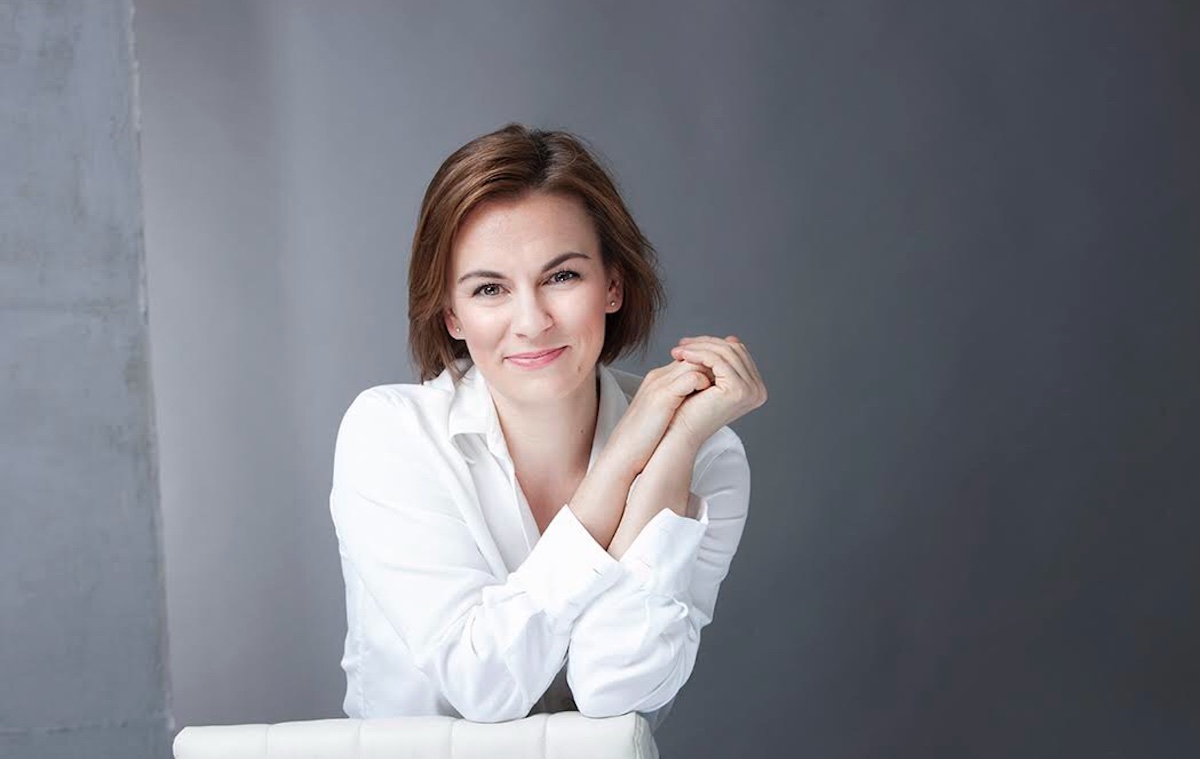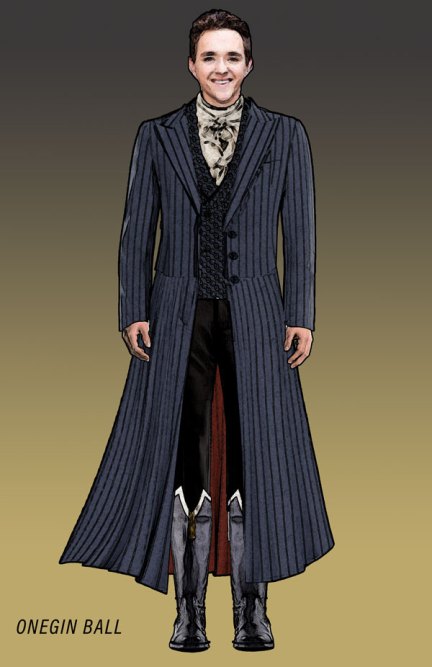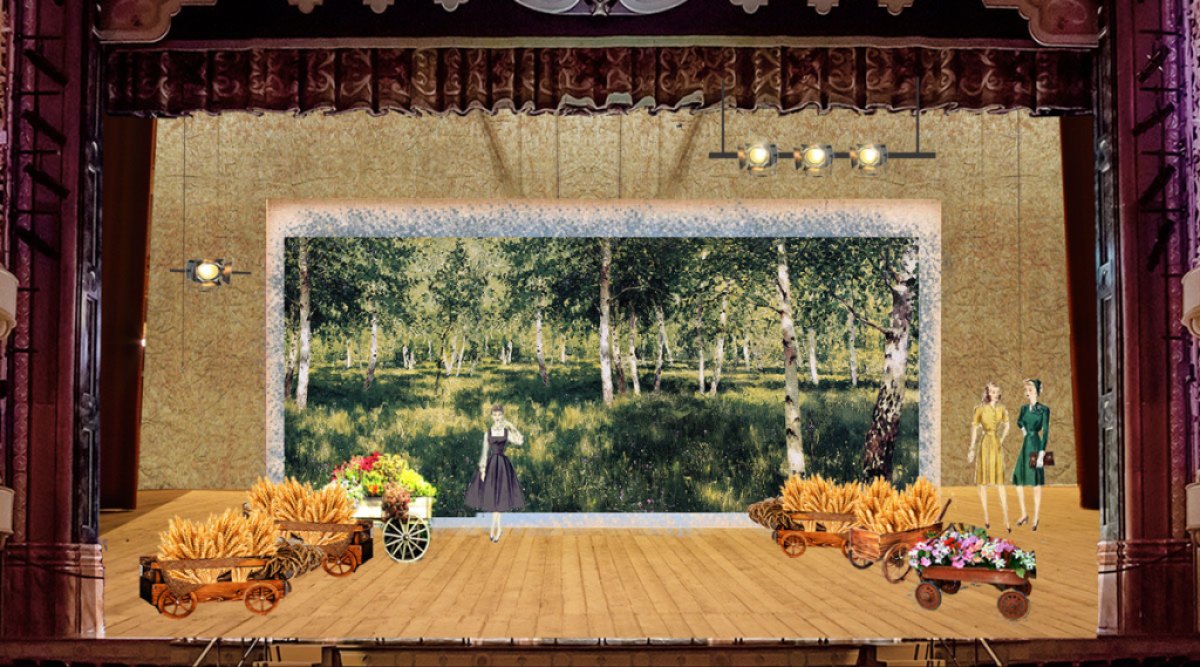Midsummer Grand Opera Moment in Santa Barbara
Tchaikovsky’s ‘Eugene Onegin’ is This Summer’s Music Academy Opera of Choice, July 15 and 17 at the Granada

One of the surefire high cultural highlights of Santa Barbara summers arrives in the form of the Music Academy’s opera weekend. Casual attire may be welcome in the house, but these fully staged productions are anything but casual. They serve as showcasing opportunities for the Academy’s lofty voice program, long run by legendary mezzo-soprano Marilyn Horne — now faculty emeritus, with John Churchwell as current director — along with other aspects of what goes into putting on an opera.
This year’s model, Friday night (July 15) and Sunday afternoon (July 17) at The Granada Theatre, brings a fresh approach to Tchaikovsky’s classic Eugene Onegin (note to the dollar-wise among us: many $10 tickets are available). Apart from the fledgling and already career-bound talents of the singers involved, director Peter Kazaras has a solid reputation and is currently head of Opera UCLA.
A rapidly ascending reputation precedes Slovenian-born conductor Daniela Candillari, whose career shot upward this season after working with the important Metropolitan Opera productions of Terence Blanchard’s much-buzzed-about season-opening Fire Shut Up in My Bones (notably the Met’s first performance of an opera by a Black composer — in 2021) and Matthew Aucoin’s Eurydice. Candillari took time out of her busy Academy schedule for an interview.

There is a lot of buzz around the opera this season, especially given that it’s the first staged opera at the Music Academy since 2019. The operas are always an important piece of the overall festival puzzle. Do you sense a general spirit of excitement around this production, in the preparation stage?
Of course, we are still following protocols and being very careful, but I think we all missed the community and camaraderie that gets created in the rehearsal room. Having a chance again to participate in the creation of something unique is truly special, and we can’t wait to share it with audiences.
How do you see Eugene Onegin in the ranks of standard repertoire operas? Is there a kind of timelessness and crowd appeal with this piece?
Tchaikovsky was such a master of writing beautiful and memorable melodies, supported by an incredibly colorful orchestration and a very unique harmonic language. One needs only to look at Nutcracker, for instance, and the impact that piece has on everyone. In my opinion, the effect of Onegin is very similar. It is a story that deals with love, hope, loss, betrayal — all the emotions that all of us have probably experienced at some point. It is certainly one of the great pieces of the operatic canon, and it always resonates because it deals with true human emotions and situations.
Are there particular aspects, period adjustments, or conceptual settings in this production apart from a conventional staging of the opera?
For this production, we are paying homage to 1947 and the founding of the Music Academy. There are two time frames that we see in the opera: The first one is 1947, as mentioned, and the second one goes back further into the history.
You have had some exciting opera conducting projects recently, including Matthew Aucoin’s Eurydice at the Met (and Aucoin spent time working at the Music Academy in recent years). Do you think that opera, for one, signifies or augurs a healthy new era for contemporary opera?
This was the second time I worked with Matthew Aucoin, and I am a big fan of his music. He has a really unique way of connecting different musical languages. In his music, I find elements of minimalism and 12-tone technique that are incredibly poetic and colorful. His use of orchestra colors is equally special, and during both of our collaborations I have found myself being incredibly moved by his writing.
Eurydice was a very interesting project where the ensemble onstage retained the ensemble quality of the play, and the orchestra provided the elements that informed us about characters, created worlds, and further gave us a chance to read our own interpretations into it. The vocal as well as the orchestral writing is virtuosic, and one can find nods to the operatic canon in his writing, which I think means that the writing is expanding and reflecting our time.
Sign up for Indy Today to receive fresh news from Independent.com, in your inbox, every morning.
You also conducted Terrence Blanchard’s Fire Shut Up in My Bones, an important barrier-breaking opera opening the last season at the Met, for the Chicago Lyric Opera. I wondered if your work in jazz helped you in getting into the bones, so to speak, of that particular project.
I think so. In addition to understanding the style of Fire Shut Up in My Bones and Terrence Blanchard’s writing, it was really helpful when working with the jazz combo, which functions almost like a continuo element throughout the opera. Additionally, I was always thinking about the sound of the orchestra from the perspective of jazz bands from the past and their sounds, and how that can get translated into a modern-day opera orchestra.

What are the conducting projects coming in the next season that you are particularly looking forward to?
This coming season has a really nice mix of contemporary and standard opera, but also symphonic and operatic projects. The season is starting with a concert performance of Lakmé at the Deutsche Oper Berlin, which will also be my debut there. It’s a piece that is not performed very often and having a chance to visit it is very exciting. Later in the season, I will be making my Canadian debut with Orchestre Métropolitain de Montreal in a concert with Dvořák’s 7th Symphony and a premiere of a concerto for theremin by Simon Bernard.
There are also two different productions of Tosca, first one at Arizona Opera and the second one at Opera Theatre of St. Louis, where I’m principal conductor. Tosca is another one of my favorite operas, so I look forward to getting to work on two different productions almost back-to-back.
With all the conducting work you are up to, are you finding time to compose — or forcing time to do so?
Finding time to compose has been really challenging this past season. Earlier on in my career, I could always carve out a week or two to sit still and compose, but recently, that has not been the case, unfortunately. When I’m learning and interpreting music of other composers, I find it really difficult to separate myself from a current project, because the preparation requires all of the attention.
How has your experience at the Music Academy been so far? Are you impressed with the level of musicianship and dedication to the projects with the fellows, and the general atmosphere of the institution?
This is my third summer at Music Academy, and every year has been special. I’m always impressed with the fellows’ dedication to each project, their responsiveness and openness to ideas and interpretations. It is really wonderful to have a chance to work with fellows who are the future of music.
Is there anything else you would like to add about the upcoming opera production?
This is a wonderful chance to see a very popular and beloved opera, hear all of the vocal and instrumental fellows, and have a wonderful evening in the theater celebrating the 75th Anniversary of the Music Academy.
See musicacademy.org/big-shows/eugene-onegin-2022/.

Support the Santa Barbara Independent through a long-term or a single contribution.




You must be logged in to post a comment.